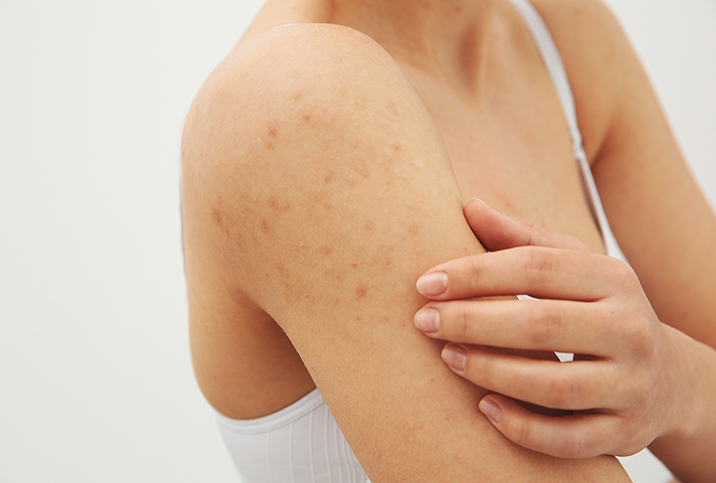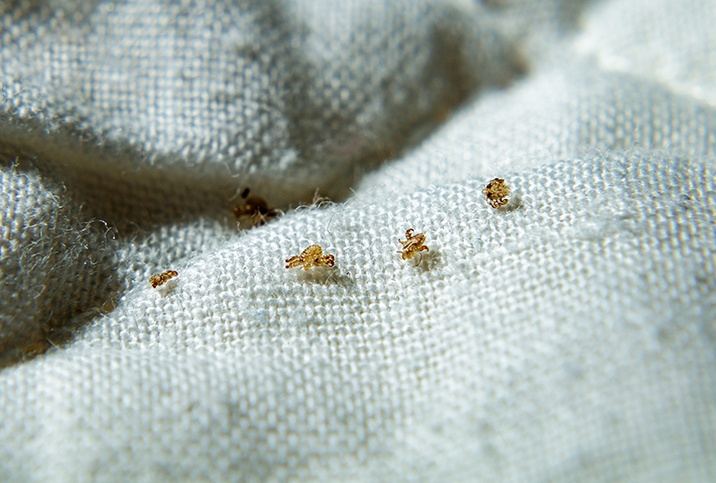Overcoming the Stigma of Scabies

No matter the illness, disease or infection, there is a stigma to go with it. Scabies, a highly contagious parasitic infection that more than 200 million people have at any given moment, is no exception. Through education and awareness, we can help others understand the truth about this parasite to prevent future outbreaks.
Scabies is a parasite
Scabies causes an itchy skin infection and most commonly affects the hands, feet and genitals. The culprit of this condition is a tiny parasite called the human skin mite (sarcoptes scabiei). These microscopic critters burrow into the top layer of skin to lay eggs and feast on dead skin cells.
Having first-hand experience with this infection, I know the intense itching and inflammation caused by this invasion can be all-consuming, and at times, your skin can burn like you're holding your arm over a pot of boiling water. While the rash typically starts small, it will quickly spread to your entire body, causing pimple-like raised bumps and inflamed red patches. By far, the worst part about this condition is being treated as a pariah by friends and family when they find out you have it.
Hygiene does not prevent infection
People who are infected with scabies often face social stigmas, causing them to avoid disclosing their diagnosis. This infection is incorrectly associated with having poor hygiene or being overly promiscuous, but the reality is transmission is common in any area with large concentrations of people. For this reason, prisons, hospitals, rehabilitation centers and nursing homes are the most common sites for contraction, despite the fact scabies is typically referred to as a sexually transmitted infection (STI).
When I was infected, I was the housekeeping supervisor at a nursing home. One of our residents came in with the infection, and I was the lucky one who got to handle the bedding and clean the room. Unfortunately, I got infected and brought it home to my family. Thankfully, I caught it early, but my whole family needed to be treated because they were in contact with me.
The worst part about the infection is no amount of cleaning, showering or disinfecting can prevent it. The best course of action is to know the symptoms, treat it early and avoid direct skin contact with someone infected.
Treating a scabies infection
The treatment of a scabies infection is not invasive and can be done in the privacy of your own home. Doing it in a timely fashion is the hard part: a person can be infected and contagious for up to eight weeks before showing symptoms.
For this reason, once you're diagnosed with scabies, it's important to communicate your diagnosis to family, close friends and sexual partners. These individuals should consult their doctors who will likely prescribe preventative treatment to halt a possible outbreak.
Scabies treatments (or scabicides) can only be obtained at a pharmacy with a doctor's prescription. This medication is administered as a topical ointment to be applied from the neck down. It's important to apply it to every area of the body, especially the hands, feet, genitals and hard-to-reach skin folds. Be careful to avoid mucus membranes such as the inside of your nose, mouth and eyes as the ointment can burn.
Once applied, this topical ointment must stay on the skin for a specified length of time before showering. Many physicians recommend a follow-up treatment about two weeks later to prevent a recurrence.
Education can end the stigmas
Many people misunderstand scabies because of long-standing social stigmas. The best way to overcome these stigmas is with education. People of all ages are susceptible to this infection, so providing education in schools can help children and their families better understand the symptoms of this condition.
Having open discussions around the topic can help the public understand how easily contractible it is. Articles and other public resources provided by medical institutions can help to answer the uncomfortable questions about scabies. Most importantly, if you contract this infection, it's important to educate your close friends and family, so they can receive treatment before they present symptoms.
















